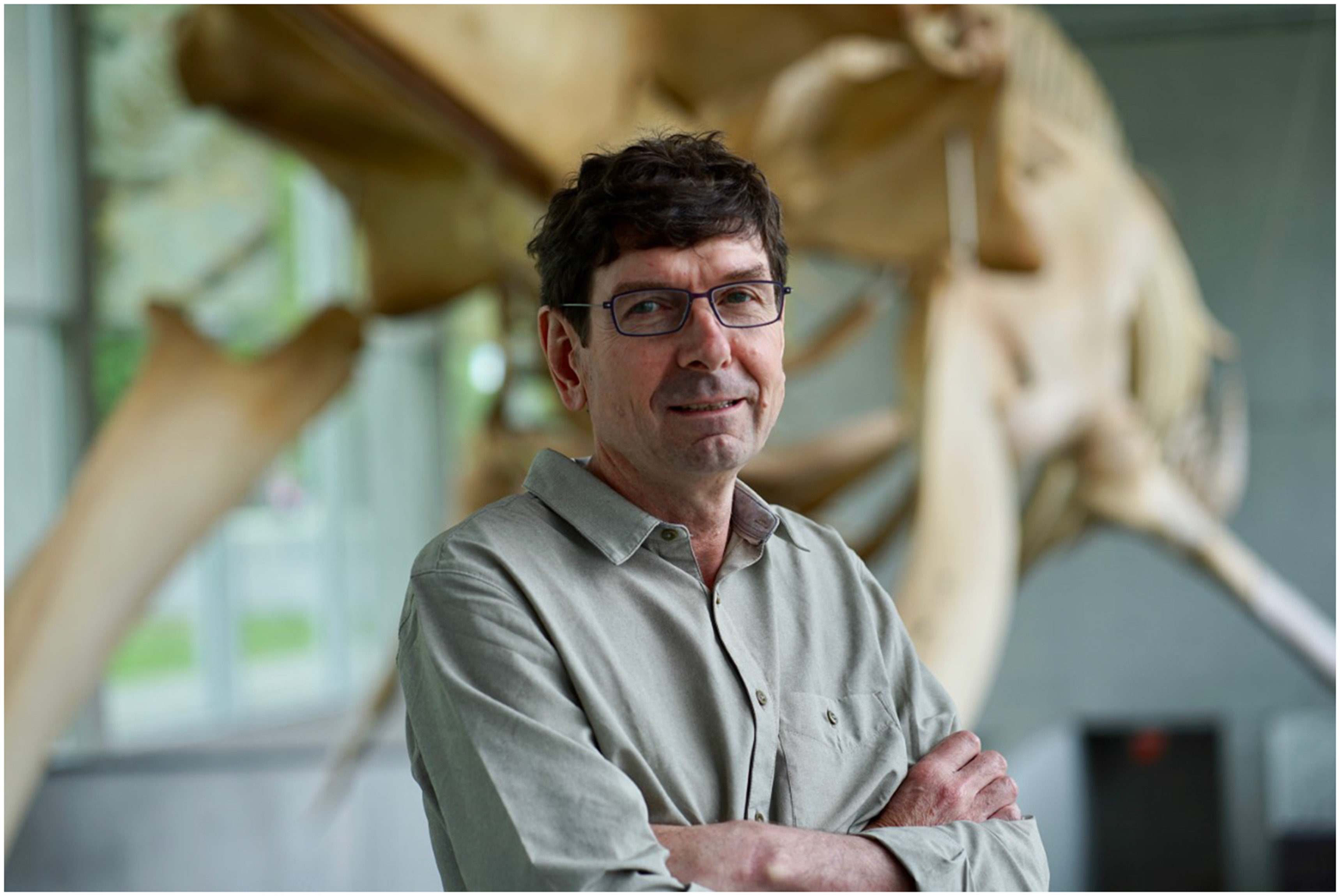UBC biologist wins prize for research on ‘dazzling’ explosions of evolution
January 27, 2023

January 27, 2023

UBC evolutionary biologist Dr. Dolph Schluter has been awarded the Crafoord Prize in Biosciences by the Royal Swedish Academy of Sciences (RSAS) and the Crafoord Foundation for his research into the role of natural selection in adaptive radiation and the origin of species.
The Crafoord Prize, which includes 6,000,000 Swedish krona ($780,000 CAD) to fund further research by the winner, is awarded by the RSAS in disciplines they don’t consider for Nobel Prizes.
“Dr. Schluter’s contributions have been vastly influential and he has set the stage for the current research agenda on the role of ecology in speciation,” said Professor Ove Eriksson of Stockholm University, and chair of the prize committee for the Crafoord Prize in Biosciences. “We regard Dr. Schluter as the leader in ecological studies of the origin of species over the last four decades.”
Dr. Schluter’s earliest work was carried out on the evolutionary ecology and morphology of Darwin’s famous finches in the Galápagos Islands. The work was a major component of a long-term study of the finches that has since been recognized as one of the most successful field studies of evolution.
“I was in my twenties and up to that point I’d never been further south than Boston,” recalls Dr. Schluter. “It was mind blowing living on these remote uninhabited islands with no radio contact for five months at a time, with a boat replenishing our supplies of citrus and perishable foods. We would’ve died if those boats didn’t turn up as scheduled and they were always a day late, which caused us no end of concern.”
The 13 species of Galápagos finches are the most celebrated example of adaptive radiation—the rapid proliferation of species from a common ancestor—as the birds evolved over a relatively short time to exploit the islands’ ecosystems in different ways.
“The key feature of adaptive radiation is that natural selection causes evolution in opposite directions between new species,” Dr. Schluter says. “In one species, natural selection favours a big beak and in another, a small one. Those beaks are an example of adaptation to eating seeds of different sizes.”
On average, it’s been estimated that it takes about two million years for one species to split into two across the tree of life. Yet the Galápagos finches are descended from a common ancestor that lived 100,000 years ago.
“Episodes of adaptive radiation are dazzling,” Dr. Schluter says. “It’s a time in Earth’s history where the dial is turned up. Things happen rapidly, new species evolve, new ways of life emerge.”
More recently, Dr. Schluter has been working on a mini-explosion of new species of three-spined sticklebacks in the coastal lakes of British Columbia. The lakes formed less than 12,000 years ago after the last ice age. As a result, the local stickleback species are among the youngest on Earth and no more than two species occur in any one lake—but pairs of species in different lakes seem to have evolved completely independently.
“Often we become biologists because we have a fondness for living things—fish and flies and mice,” he says. “Stickleback are wonderful to watch. In the lab they follow you around from one side of the tank to another and react to you. And they’re wonderful creatures for what they can do for us as scientific instruments.”
Stickleback have allowed Dr. Schluter’s lab to address very basic questions concerning the roles of resources, species interactions, phenotypic plasticity, sexual selection and other factors in the evolution of diversity. The fish produce viable and fertile hybrids in the lab, making it possible to investigate the genetic basis of species differences using hybrids.
“My father was from Amsterdam and he collected stickleback from the canals and put them in fish tanks when he was small,” says Dr. Schluter. “He had a fish tank in the house when I was a kid. Eventually I took it over and learned how to keep fish, which helped jump-start my adventure.”
We honour xwməθkwəy̓ əm (Musqueam) on whose ancestral, unceded territory UBC Vancouver is situated. UBC Science is committed to building meaningful relationships with Indigenous peoples so we can advance Reconciliation and ensure traditional ways of knowing enrich our teaching and research.
Learn more: Musqueam First Nation